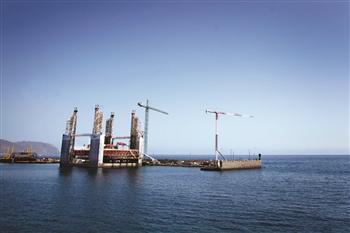UNITED NATIONS: UN troops are to be moved to the tense north-south Sudan frontier to head off violence ahead of a referendum that could break up Africa’s biggest nation, a top UN official has said.
But international unity over Sudan took a blow Thursday when China objected to a UN Security Council resolution on monitoring sanctions against allies of Sudan’s President Omar Al-Beshir.
Extra troops were ordered to "hotspots" on the frontier after the council was told that the south’s leader feared a war with the north over the looming independence referendum.
US ambassador Susan Rice said southern Sudan’s president Salva Kiir had asked for a frontier buffer zone with only UN troops when he met Security Council ambassadors last week.
"President Kiir also warned that he fears the north may be preparing for war and may be moving troops southward," Rice told the council.
After the meeting, UN peacekeeping chief Alain Le Roy said UN troops would be moved toward the north-south border within weeks.
"We will increase our presence but only in some hotspots," Le Roy said. The UN mission, UNMIS, did not have enough troops to create a buffer zone along the whole 1,250 mile (2,000 kilometer) border.
UNMIS has also announced that it will step up checks on allegations made by the two sides that the other has launched a military buildup on the frontier.
It said it would ask the armies in the north and south "to share the information they have and increase the tempo of our verification and monitoring activities to prevent any escalation of tensions."
Southern Sudan and the nearby Abyei region are to hold a referendum on January 9 on whether they want to break with the Arab-dominated north.
The votes are widely expected to lead to secession, but preparations are seriously behind schedule and Western nations fear a conflict if there is a delay.
UNMIS has about 10,600 troops and police in Sudan monitoring a 2005 peace accord that ended two decades of north-south civil war in which some two million people died.
The Security Council, including the main powers – the United States, China, Russia, Britain and France – went to Sudan last week to give a united message that the referendum must be held on time.
The United States is looking for ways to strengthen the application of UN sanctions against Sudan if there is a delay, a senior US official said.
China, however, abstained in a Security Council vote on Thursday on extending the mandate of experts overseeing existing travel and assets freezes against Sudanese figures involved in the Darfur war. There is also an arms embargo on Darfur.
President Al-Beshir is not on the sanctions list but is wanted by the International Criminal Court for genocide and war crimes in Darfur.
China is the major buyer of Sudanese oil and has other key commercial interests.
"China has serious concerns about the annual report submitted by the panel of experts on the Sudan sanctions committee and believes that there is much room for improvement in the work of the panel," a Chinese official told the Security Council, to justify the abstention.
"We urge the panel of experts to conduct their work under the principles of objectivity and responsibility," the official added, without giving any details.
China could have vetoed the resolution as one of the permanent members of the council. The abstention signaled its strong concern.
US ambassador Rice said the new resolution includes measures that tighten enforcement of the arms embargo, "including language to make clear the scope of the current embargo and clarify obligations of the government of Sudan and other member states’ under the sanctions regime."
She added: "Although the panel has faced setbacks in Sudan and restrictions on mobility, their presence and reporting reaffirms the Council’s commitment to the safety and protection of the people of Darfur."
The senior US official said earlier that there are "additional measures" that could be applied by the international community if the referendum is delayed.


